Annual General Meeting
October 21, 2021
President’s Report
A year ago, I made my first report to you as President of the LCA. We were still in the first year of COVID and it was already clear that the pandemic would have an especially large impact on our community. I noted at that time that members of the community and the governments supporting us were working well together to deal with the health crisis. I was hopeful that the new vision developed by the LCA for our community would provide a useful part of the plans for dealing with the pandemic and for managing the eventual return to normal. I am not so optimistic now.
There were some successes for Lowertown and the LCA in the last year.
-Our Association has thrived in the ZOOM era. The average monthly participation in our meetings has climbed from about 20 to over 40. The new people who have gotten involved have broadened our scope of activities.
-We have launched two new areas of involvement: Arts and Culture, and a focus on our parks
-We have supported efforts to expand affordable housing options across the city and in our community
-We were leaders in creating and supporting the Coalition to save the Alexandra Bridge
-We have continued to support the ECHO, our dynamic community newspaper.
-We finally managed to get the old Porter Island Bridge designated as a heritage asset.
-We even saved few mature trees that were slated for removal to create a cycle route on a street where there was ample room to reduce the space for motor vehicles and accommodate a cycle lane.
THE LCA WORKING COMMITTEES
Looking more closely at the actions of the LCA working committees, you get a picture of the many areas in which we are making a contribution:
The Planning Committee:
We have followed closely and commented extensively on the development of the new Official Plan for the city. We welcome the decision to focus on the differing needs of the urban, suburban and rural districts in our city. Too often Lowertown has suffered from the one size fits all approach of the current plan. But we regret the fact that the new OP seems to endorse the idea that a large part of our community should be designated as an “entertainment district” with little or no though of how residents or other small commercial operations will fit in to that model. We view the commitments to affordable housing to be so weak that no progress is likely to be made in reducing the number of homeless persons on our streets. We note that the new OP offers no roadmap to the removal of interprovincial trucking from our community. To counter these weaknesses, we have asked the city to move quickly to develop a secondary development plan for our community, with a clear opportunity for residents, businesses and institutions to influence the plan.
At the same time the planning committee has been dealing with a growing number of specific development approvals, many of which seek exemptions form the current bylaw limits. In our Vision 2035 we endorsed infill and expansion of residential buildings to accommodate a large increase in the Lowertown population for individuals and families through mid-rise developments. Instead, most the developments seem to be in high rise buildings aimed at singles and visitors. For a full list of the current development projects see the report of the planning committee on our website.
THE COMMUNITY SAFETY COMMITTEE
This year, as last, has seen a twofold impact on crime in our community. The greatly reduced flow of people to Lowertown has been accompanied by a fall in crimes against the person, but the increasingly desperate situation of the homeless population has meant that crimes against property (such as thefts and break-ins) have risen significantly. The work of the safety committee has focused primarily on finding better ways to respond to the unpredictable, aggressive and sometimes violent behaviours seen on our streets. The capacity of the city to respond to crises on the street has been woefully inadequate. Calls to 311 go unanswered, social services are uncoordinated, police are the only consistently available frontline service. As a result, our residents and the LCA members have had to become front line workers themselves.
THE FRIENDS OF LOWERTOWN PARKS:
The Friends of Lowertown Parks initiated in 2020 are dedicated to promoting the health of our parks and facilities and to supporting the City of Ottawa to keep our parks accessible and safe for all who use them.
Initiatives: Bingham Park revitalisation; Bordeleau pop-up history boards; MacDonald Gardens Heritage Conservation Plan; Raphael Brunet garbage can installation; Jules Morin rink improvements; Rose Park revitalisation/enhancements. Promoting Champagne Baths Fitness Centre and Routhier Centre reopening’s and upgrades.
General Advocacy: Providing input into the City’s Parks and Recreational Master plan; continued adoption of parks and Cleaning the Capital; control of Gypsy Moth Caterpillars. Ongoing support of the Causeway Needle Hunter Program,
HERITAGE COMMITTEE
Our heritage committee has continued its successful involvement in the protection of the built heritage. The groundwork has been laid for the review and renewal of the existing protection in Lowertown and a significant public consultation of the heritage districts in Lowertown will take place in the next year. The Porter Island Bridge was given designation. York Street School should be designated by next year on its 100th anniversary. There continue to be many pressures from developers on our heritage districts. Often the building heights sought within heritage districts or just on their boundaries can destroy the fabric of that district. There are ways to accommodate development that enhance heritage but this is rarely the approach that we see.
HOUSING AND HOMELESSNESS
The main efforts of the housing and homelessness committee this year has been to lead and to support efforts to the city and other levels of government to expand the creation of much more affordable housing. The city is far too dependent on shelters and transition housing and very under supplied in supportive housing, subsidised housing and low-cost commercial housing. The existing shelter services are far too concentrated in and around Lowertown one part of the city. We have been active advocates for increased affordable housing across the city, working with the Alliance to end Homelessness, the Vanier Community Association and other downtown communities to advocate for more spending on new affordable housing units, inclusionary zoning, a vacancy tax, and more accountability in the 10 year housing plan.
ARTS AND CULTURE COMMITTEE
It is first year our AC committee got a real boost when Ottawa Markets provided a $10, 000. One time grant to the LCA to help build community support for the markets. The Arts and Culture Committee was able to work with residents and in partnership with a community arts organisation to enliven a part of the market area with an exiting new mural. Residents not only had a chance to contribute ideas for the mural but also to participate in painting the mural. It was a great way to underline that Lowertown is a community where arts and culture play a very important role.
The Committee has begun to network with the many active players in the arts and culture community in Lowertown and it will expand these connections in the next year. Now (fingers crossed) that more arts venues can function at full capacity we can really show off our talent and determination.
THE TRANSPORTATION COMMITTEE
This year the transportation committee continued to advocate for short- and long-term measures to reduce the damage caused by the truck route and commuter arterial through our community. There has been very little progress on the King Edward file. The city has ignored it in the new Official Plan. Talk of a sixth crossing seems lost in confusion and obfuscation. Maybe we should just accept the status quo, erect some bleachers on Rideau between Waller and King Edward and charge visitors for the privilege of watching 18-wheelers navigate through and around pedestrians and cyclists.
A new concern emerged this year when the federal government confirmed its intention to destroy the Alexandra bridge and replace it with a new structure to service the same traffic needs. The LCA has taken a lead role in creating and supporting the coalition to preserve the present Alexandra Bridge. We believe that the present structure has many years of useful life ahead of it as an active transportation and perhaps a tramway loop. The federal government says that it has engineering studies which prove that the bridge must be destroyed but they have not shown us the studies or the terms of reference that were given to the engineers. We shall continue to oppose this expensive and environmentally destructive project and to promote the vision of the Alexandra Bridge as a symbol of how Canadian engineering expertise can be renewed and adapted to the needs of a greener economy.
ENVIRONMENT AND ACTIVE TRANSPORTATION
The LCA remained very active in the leadership of the city-wide CAFE network of community groups working to defend the environment. Through Café we made extensive comments on the new Official Plan and we took stands on specific urban issues such as the ill-considered decision of Council to expand the urban boundary. We also engaged in local issues, trying to ensure that proposed spending on the public realm in the ByWard Market will make provision for lots of trees. Here a few our actions this year *Urging passage of ByWard Market Public Realm plan and improving public space, support local food, active transportation, 40% tree canopy and a secondary plan (2020-2021)
*Urging action at Environment Committee for tree protection for trees impacted by the gypsy moth infestation
*Supporting passage of Energy Evolution strategy
*Supporting Alexandra Bridge Coalition re environment / active transportation elements and encouraging other environmental organizations to join
*Supporting motion for urging Ontario to develop and implement a plan for gas phaseout by 2030 which passed Council last week
*Participating in Official Plan work related to environment largely through People’s Official Plan group (POP) coalition.
In spite of these achievements in so many areas, last year was discouraging overall. Vision 2035: Last year we presented to this AGM a community build vision for Lowertown that was well balanced to meet the needs of the city and residents in this community. It called for a large increase in residential accommodation, with a special focus on housing suitable for young families. The vision contained a commitment to an expanding commercial sector based on a diversity of activities. And the vision had concrete ideas for attacking the causes of crime and insecurity in Lowertown. There is no sign that the city staff have even looked at this vision and certainly many of the actions will undermine it.
Three Specific Examples of frustration:
- The Emergency Shelter at le Patro: The decision to house an emergency Covid treatment center for the homeless population in the middle of a vulnerable residential area without any consultation. From the outset of the pandemic the homeless shelters had been identified as potential areas where the virus could spread. An initial site to treat and isolate Covid patients in the Routhier Centre was effective and supported in the community. It was understood that the Routhier Centre would not be large enough to handle a major outbreak but none of the authorities involved in preparing emergency plans ever consulted with Lowertown residents about the options being considered for a larger centre. The residents around 40 Coburg, home of le Patro, site of a pool, home to children’s activities, adjacent to a major active park and near two schools never expected that this site would be chosen for an emergency shelter and people were understandably angry when it was announced. There should have been consultation prior to this decision, there should have been more active listening after the decision was announced. Other sites might have been identified and certainly ways to mitigate impacts could have been found. This is the kind of cavaliere treatment of communities that undermines trust.
- The Public Realm Plan: This is a very needed plan for investment in the street and sidewalks of the ByWard Market neighbourhood. The infrastructure has been run down and neglected for years. The LCA has supported this plan from the beginning but has always argued that the new investments have to based on a vision and plan for the ByWard Market that are consistent with the a mixed commercial, residential and events-based area. Instead, without meaningful consultation on the kind of neighbourhood that would be best for business, visitors, residents and the city, the public realm plan was developed around the contested vision of ByWard as an “entertainment district”. Residents have opposed this vision and it is not all clear that this is the kind of offering that tourists want and businesses need to prosper. The last, best chance for getting this right is the development of a secondary development plan for ByWard.
- The Development of Supportive Housing at 216 Murray: This issue has divided the LCA and the community. The LCA believes that the city needs more supportive housing for people now in shelters. These are the most vulnerable members of our society and the shelter environment is very destructive for them. Building supportive housing right beside a shelter will mean that residents of the new supportive housing units will be exposed every day to the threats and temptations of the shelter community they are trying to leave. Shepherds of Good Hope argue that they can manage this conflict and that residents in the supportive housing will be much better off than where they are now in the shelters. Members of the LCA have been sympathetic to both of these views. If the city would do the right thing and help SGH to find a suitable site for its supportive housing (there is already a very successful site on St Andrew) the LCA would back it. In the end the LCA did not take a position on this file but it fully understands the frustration that has led many residents to oppose the project.
My Last AGM
I am coming to the end of my term as President of the LCA. I end my mandate proud of the dynamism and generosity of this community. I share the pleasure of living here and I believe that the problems faced here can be solved with goodwill, determination, openness and care. Ottawa will be a better place to live and visit if Lowertown is healthy. For me that means a good mixed of residents and different kinds of business, a healthy farmer’s market drawing on the amazing agricultural resources of our city and region, a flourish restaurant and culinary culture. I have every confidence that the executive you will elect today will help to move Lowertown and Ottawa in that direction.
Let me end by thanking members of this community for your interest and support; our elected representatives for their leadership through these pandemic year; and finally the members of the LCA Executive team who have put in countless hours in unpaid works because they care about our Community and our city.

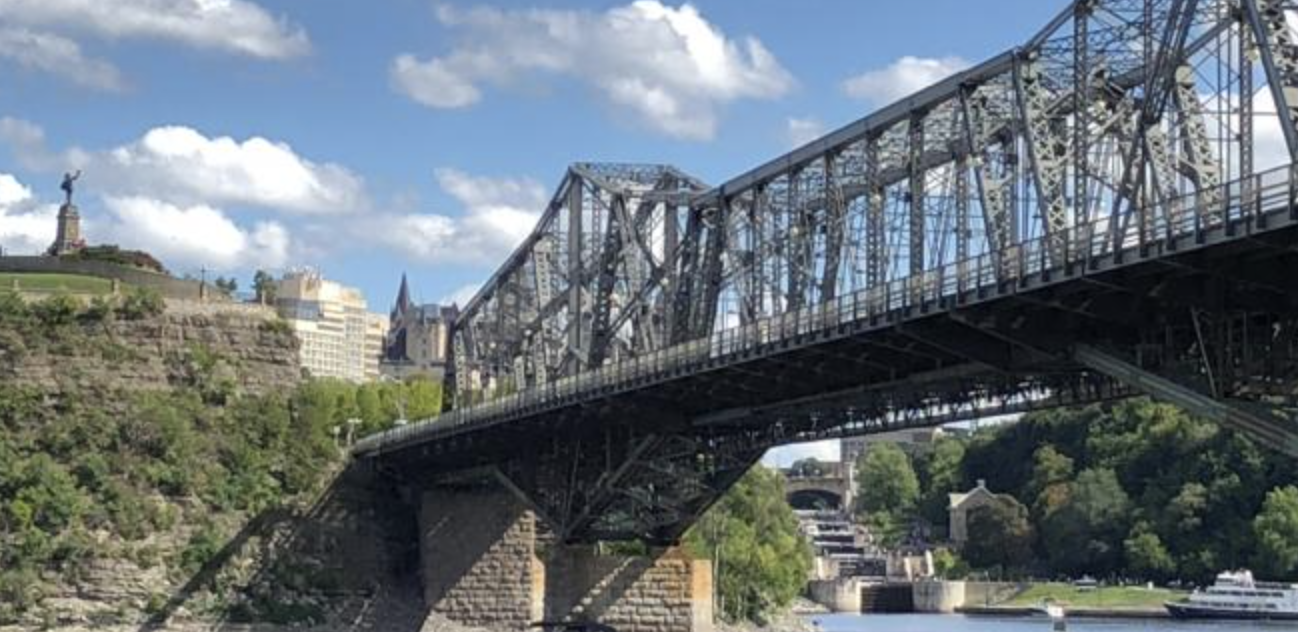
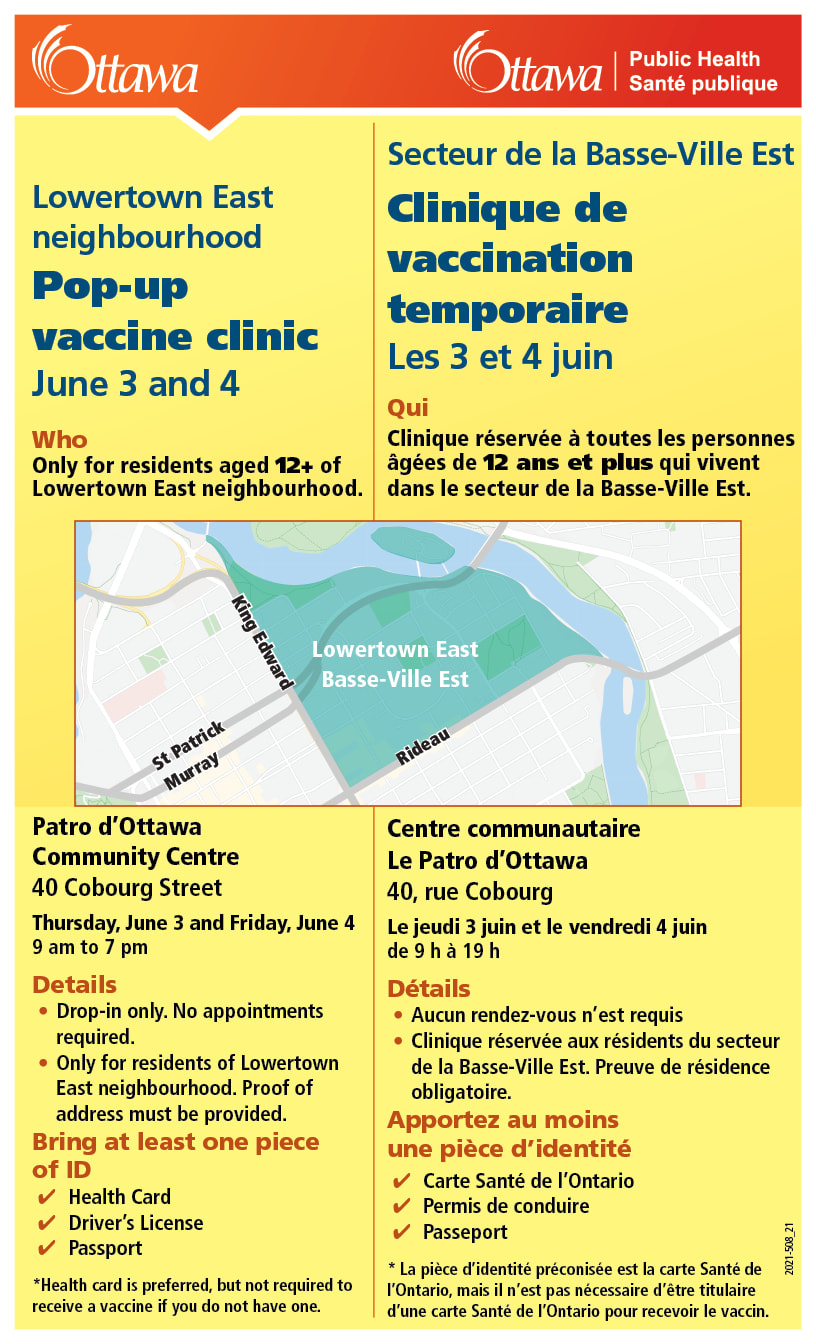
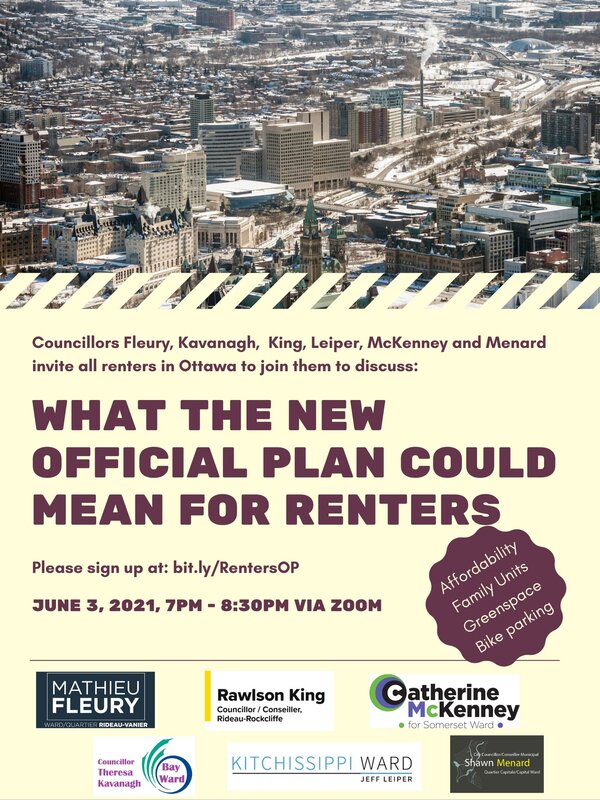
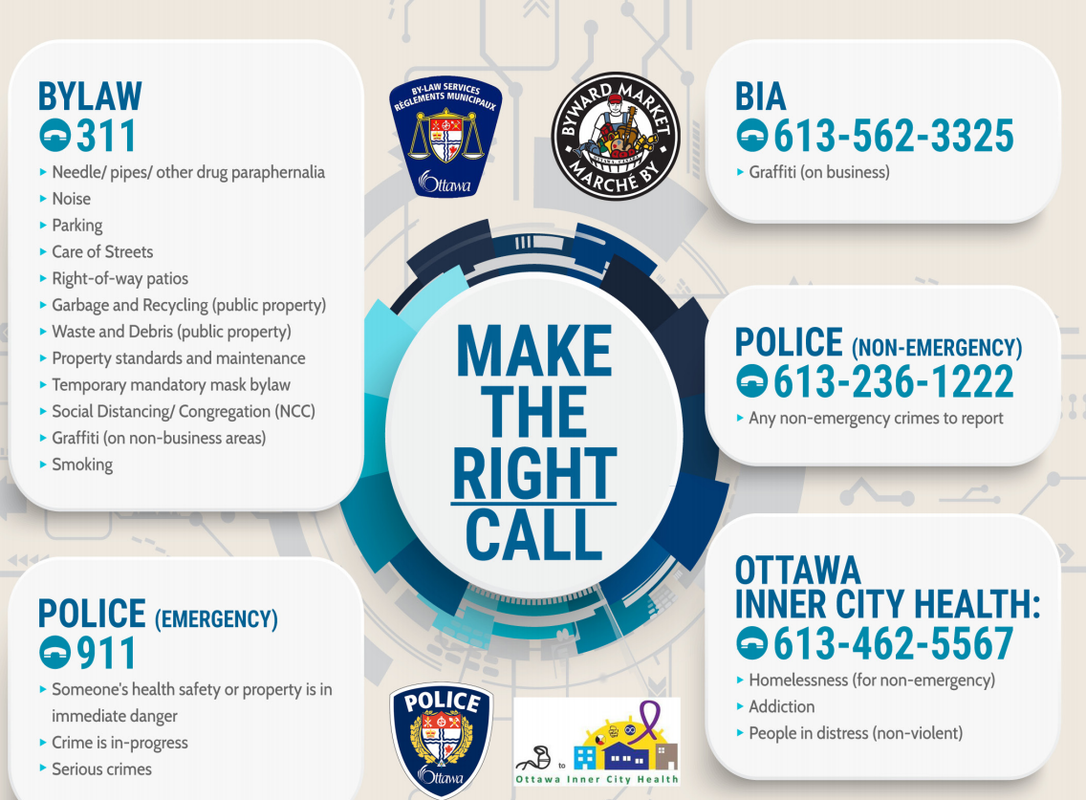

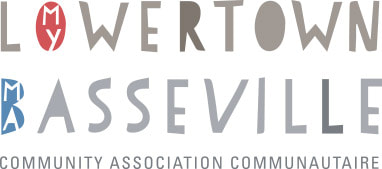
 RSS Feed
RSS Feed